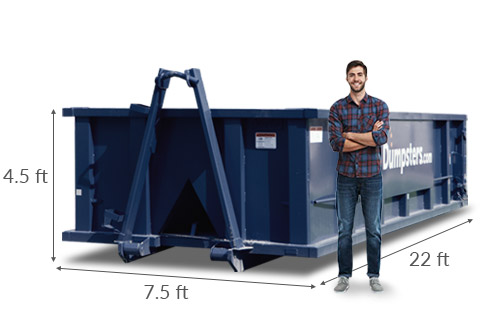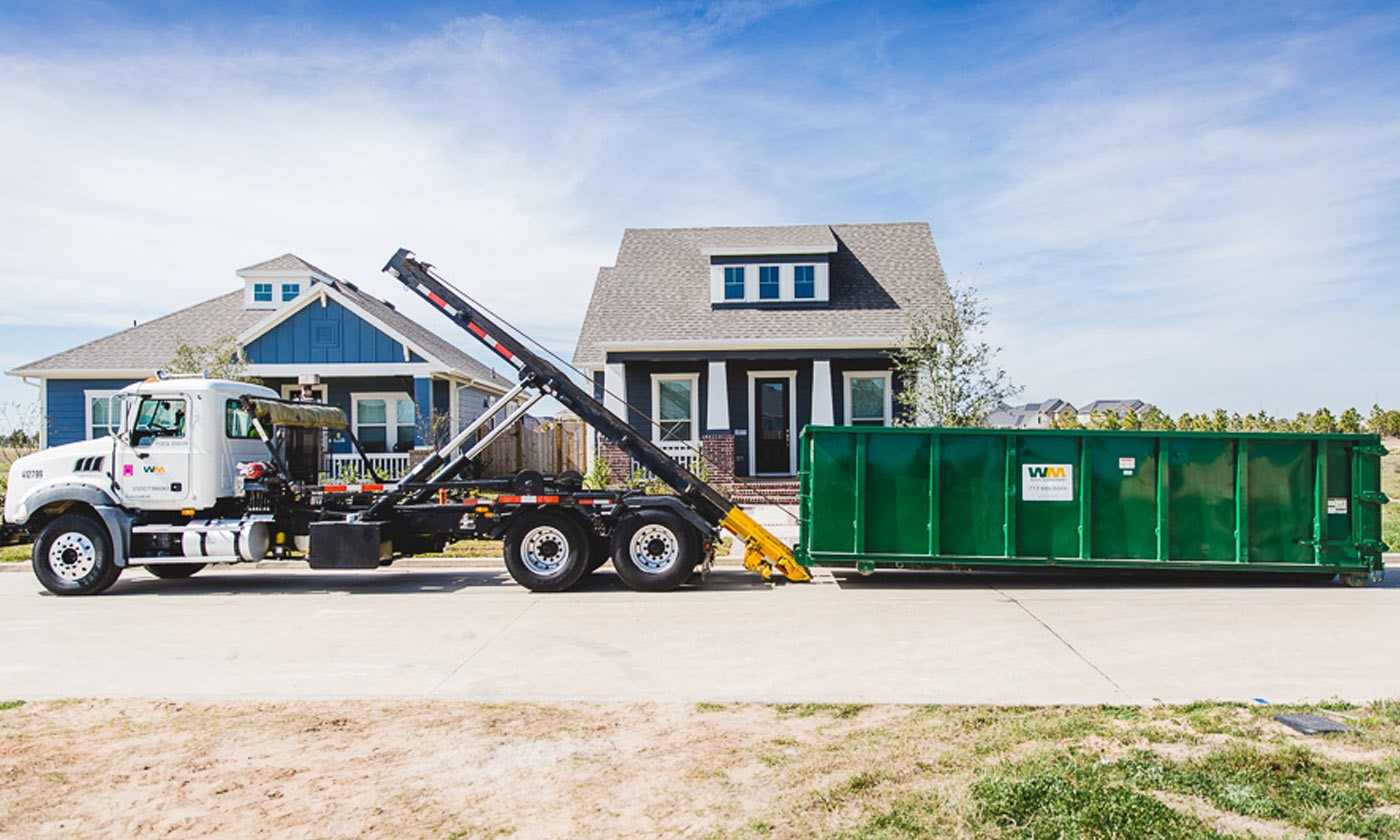To guarantee an effective dumpster rental, comply with these 10 necessary steps: determine your dumpster needs by evaluating project scope and waste generation, choose the right dumpster size for effectiveness, pick a reputable rental company, and comprehend rental expenses. Prepare the shipment location, load the dumpster successfully, and handle hazardous waste materials Set up a timely pickup, review and finalize the rental information, and educate on your own on the rental procedure and waste monitoring planning. By following these steps, you'll be well on your method to a hassle-free dumpster rental experience; and with a few even more details, you'll be completely furnished to tackle your project with confidence.
Determine Your Dumpster Needs
Most construction https://anotepad.com/notes/h3mpy93n and improvement tasks generate a substantial amount of waste, making it crucial to determine your dumpster needs accurately. Falling short to do so can lead to inefficient waste management, raised costs, and project delays

To establish your dumpster needs, start by reviewing the scope and dimension of your project. Consider the kind and amount of materials you'll be working with, as well as the period of the task. This will offer you a rough price quote of the waste volume you can anticipate to generate.
Additionally, consider the logistics of the task site, including the readily available room for dumpster placement and the ease of access of the location. By taking these elements right into account, you can make an educated decision about the kind and dimension of dumpster you require to rent.

This will ensure that you have the necessary sources to manage waste efficiently and maintain your project on track.
Choose the Right Dumpster Size
With a clear understanding of your project's waste generation potential, choosing the right dumpster size comes to be an important action in ensuring efficient waste management
A dumpster that is too tiny will certainly cause frequent emptying, increasing expenses and disrupting your job's timeline. On the other hand, a dumpster that is as well big will certainly not just be extra expensive however also occupy extra space than necessary.
To establish the ideal dumpster size, think about the type and quantity of waste you anticipate to create. For example, a 10-yard dumpster appropriates for tiny to medium-sized tasks, such as washroom remodellings or backyard cleanups.
A 20-yard dumpster, on the other hand, is better matched for bigger tasks, like kitchen remodels or building and construction tasks. It's important to properly estimate your waste generation to ensure you pick a dumpster dimension that meets your needs.
Remember to also think about any type of local regulations or restrictions on dumpster dimensions and placement. By choosing the ideal dumpster dimension, you'll avoid unnecessary headaches and assure a smooth waste administration process
Select a Credible Rental Company
While prices is important, it's vital to take into consideration the overall value you obtain. A business that provides excellent client service can make a considerable difference in your rental experience.
Additionally, verify the business abides by neighborhood laws, such as obtaining essential authorizations and adhering to ecological standards. By taking these variables right into account, you can discover a reputable rental company that satisfies your demands and gives a convenient dumpster rental experience.

Understand Dumpster Rental Costs
Several aspects add to the general expense of dumpster service, including the kind and dimension of the dumpster, rental period, and area. These variables can greatly influence the final expense, making it essential to comprehend exactly how each aspect affects the complete cost.
Dumpster Size and Type: The size of the dumpster you require will significantly impact the cost. Larger dumpsters need more materials and labor to produce, resulting in a greater rental fee.Additionally, specialty dumpsters, such as those created for heavy materials or building and construction waste, may include an extra premium.
Rental Duration: The size of time you require the dumpster will certainly also influence the cost. Daily, weekly, and monthly rental alternatives are usually readily available, with longer leasing durations typically resulting in lower daily rates.
Location and Shipment Fees: The area of your task site can impact the expense of shipment, with rural areas often sustaining higher fees because of raised transport costs.
Be certain to factor in these additional expenditures when budgeting for your dumpster rental.
Prepare the Delivery Location
Accessibility is vital when it pertains to preparing the distribution place for your dumpster leasing. Confirm the drop-off area is clear of obstacles, such as vehicles, trees, and high-voltage line, to permit a smooth delivery process.
A flat, level surface is additionally essential, as it stops the dumpster from shifting throughout use. In addition, take into consideration the dumpster's dimension and verify the delivery place can suit it comfortably.
Measure the size of your driveway, gateway, or alley to validate the dumpster vehicle can fit through. Generally, a typical dumpster truck calls for a minimum of 10 feet of size and 20 feet of vertical clearance.
If you have a slim driveway or restricted access, educate your dumpster rental provider ahead of time to discuss alternative distribution options.
Plan for Waste Disposal Logistics
Properly preparing garbage disposal logistics is essential to assure a seamless dumpster rental experience. This vital step warranties that your waste is dealt with effectively and in an ecologically liable manner.
To achieve this, take into consideration the complying with essential elements:
Waste Type and Quantity: Identify the type and quantity of waste you require to throw away, as this will certainly determine the dimension of the dumpster you call for and the frequency of collections.
Collection Schedule: Coordinate with the dumpster rental business to develop a collection routine that satisfies your demands, making sure that the dumpster is cleared regularly to prevent overflow and inconvenience.
Disposal Regulations: Familiarize on your own with neighborhood waste disposal policies to make sure that you adhere to all appropriate rules and standards, avoiding potential fines or penalties.
Load the Dumpster Efficiently
Loading a dumpster successfully is vital to maximize its capacity, minimize the threat of overflow, and minimize the demand for additional collections. A well-loaded dumpster not just saves you cash yet also ensures a smoother waste disposal process.
To tons successfully, begin by placing the largest and heaviest items at the bottom, such as furnishings and devices. This supplies a secure base for the remainder of the waste. Next off, add smaller things like boxes, bags, and loosened particles, filling in spaces and corners to reduce vacant space.
Break down large items like pallets and cages to optimize area usage Keep the dumpster's wall surfaces and flooring clear to prevent damage and promote very easy loading and unloading.
Manage Contaminated materials Materials
When it involves taking care of waste, harmful products need unique interest to validate they are dealt with and disposed of safely.
Improper disposal of contaminated materials can bring about serious environmental and health repercussions, making it essential to take the essential precautions.
To confirm accountable disposal, comply with these standards for handling contaminated materials products:
Identify unsafe materials: Make the effort to arrange via your waste and different unsafe materials such as batteries, electronics, and chemicals from non-hazardous waste.
Check neighborhood regulations: Acquaint yourself with local guidelines and guidelines for disposing of contaminated materials in your area. Some materials might call for special delivery or drop-off locations.
Use designated facilities: Use designated facilities or collection events for contaminated materials disposal, such as family contaminated materials collection centers or digital waste reusing centers.
Schedule a Timely Pickup
Once you've taken the needed steps to take care of hazardous waste materials, it's time to transform your attention to scheduling a timely pickup for your dumpster rental. This important step guarantees that your job remains on track and avoids unnecessary delays.
When organizing the pick-up, think about the duration of your rental period and the amount of waste you anticipate to generate. Make certain to supply your dumpster rental firm with an accurate quote of when the dumpster will be ready for collection.
It's vital to arrange the pick-up during a time when the dumpster is easily accessible This will stop any type of additional fees or logistical issues.
Additionally, confirm the pick-up details with your rental firm to avoid miscommunication. By doing so, you can rest assured that the dumpster will be accumulated promptly, and your project will continue to move forward smoothly.
A prompt pickup is vital to keeping a successful dumpster rental experience
Review and Wrap up the Rental
With your job's waste monitoring needs appropriately dealt with and a prompt pickup arranged, it's necessary to review and settle the rental details to validate a seamless experience.
This action assurances that all aspects of the service are straightened with your job's requirements, staying clear of any potential issues or misunderstandings.
To confirm an effective dumpster service, review the following key information:
Rental Period and Extensions: Verify the rental duration and comprehend the process for expanding the rental duration if needed.
Container Dimension and Type: Ascertain the dumpster size and type to confirm it fulfills your job's waste administration needs.
Pricing and Payment Terms: Review the complete price, repayment terms, and any kind of extra charges related to the rental.